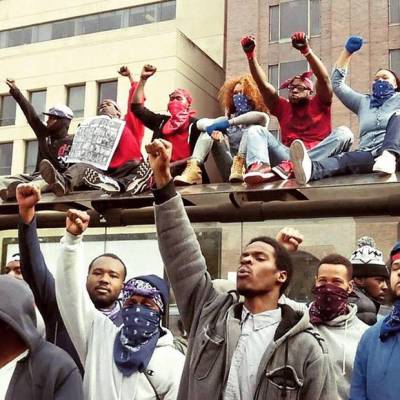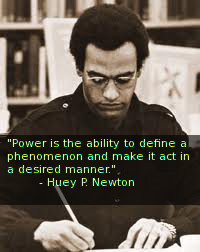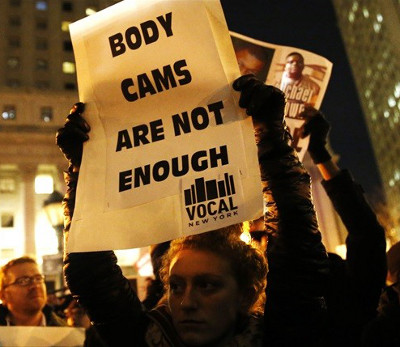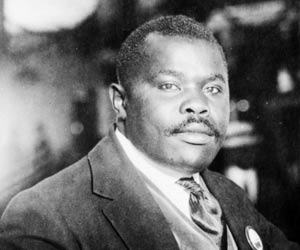Throughout the history of our uncivilized world, those who invade,
conquer, colonize, and oppress the people without fail make their first
order of business to uproot and destroy the educational facilities and
libraries. The oppressor nations and their oppressive apparatus know the
importance of books and a proper education.
As we know from history, the Africans who were brought to Amerika and
turned into slaves were forbidden to read and write. In fact, to be
caught with a book or even attempting to learn how to read and write was
a crime for them. These are facts that trouble me immensely, because the
more things seem to change, the more they actually remain the same.
In September of 2012 while being housed in the Special Management Unit
(SMU) at Lee Correctional Institution, in Bishopville, South Carolina, I
filed a grievance, because on 25 April 2012, the then-acting Warden
(Michael McCall) had the Rapid Response Team (Red-Team) confiscate all
books, newspapers, magazines, etc. from SMU prisoners. I was left
without one single piece of paper in the cell; they even took the toilet
paper.
And though this was against their own policy (SCDC Policy OP-22.12), it
has still been upheld on appeal. It is criminal to hold a human being
inside of a cell for twenty-four hours a day with absolutely nothing to
read and occupy the mind. While on SMU for almost four years, I
developed high blood pressure and mental health issues. Since being off
SMU I no longer have signs of high blood pressure and I have resolved my
mental health issues on my own. I was taking medication for high blood
pressure and the mental health issues and currently I am
medication-free.
Some prisoners get their families to order books for them, but some
bookstores such as Barnes & Noble have refused to let my family
order books that must be sent directly to me, because they’ve had so
many problems with the institutions sending books back. Companies have
simply gotten fed up with having to send refund checks, because so many
books, magazines, newspapers, etc. (primarily literature pertaining to
Black history and culture) are unauthorized and thus, we can’t receive
them.
Currently I am being held captive at Perry Correctional Institution
(PCI), which is in Pelzer, South Carolina. Here at PCI they not only
deny prisoners on SMU books, but they’ve shut down the regular library
services as well. The general prisoner population’s library services
have been shut down for about five months now. We have been told that
the books that are currently part of the regular library will be divided
up and placed on shelves and/or carts that will be built in the
respective dorm units. I have written requests to the staff here
concerning the library services (or lack thereof) and they give me the
same run-around. I have even pointed out to them that they are not
abiding by their own policy (PS-08.04 Library Services) when it comes to
how they’ve shut the library down.
The truly sad part about this whole injustice is that the warden here
(Larry Cartledge) is Black (his skin anyway), the Major here (Curtis
Early) is Black (his skin anyway), and even the person in charge of the
educational building (Linda Bratton) is Black. All of these people
should realize the significance and importance of books to a people who
have been beaten, lynched, and murdered for attempting to educate
themselves in a nation that has done everything possible to stop them
from educating themselves. We cannot give Black officials a pass simply
because their skin is black. We must hold these “Black people”
accountable not only for their actions, but for their inactions as well.
This entire system is corrupt and bent on further maintaining and
supporting corruption, oppression, and an imperialistic agenda.
The South Carolina Department of Corruption’s policy GA-01.12 (Inmate
Grievance System May 12, 2014), p. 5 states: “Responses: in most
instances, grievances will be processed from initial to final
disposition within 171 days.” It is no accident that the South Carolina
Department of Correction (SCDC) has taken well over two years to process
my grievance in question and many many more.
Once the grievance process has been exhausted, the prisoner can file
civil suits for various violations committed by the SCDC, but most civil
suits have to be filed within a two-year time frame of said violations.
The SCDC has developed, maintained, and even nurtured a system of crime
and corruption against the very people who they have the audacity to
call criminals. They prolong and hinder the grievance process in their
attempts to stop prisoners from having their day in court.
When “our people” represent the interest of the oppressive imperialist
state, they are not “our people” and we must replace them with those who
actually hold our best interest at heart. It is clear that these people
are complicit with this corrupt, unjust system of racism, oppression,
and imperialism. And though they do not want us to read books, they
throw the book at us each and every opportunity they get.
MIM(Prisons) responds: One of the main similarities between
present-day U.$. prisons, and the days of U.$. slavery, is the use of
people from oppressed groups to act as agents of oppression on behalf of
the oppressor Amerikkkan nation. The Uncle Tom phenomena is most clearly
exemplified by Barack Obama, the Black President of the United $tates,
the world’s leading imperialist power. Since the destruction of the
1960s national liberation movements, the New Afrikan nation, and other
internal semi-colonies, have been increasingly bought off by the spoils
of imperialism. New Afrikan guards in prisons are an ironic example of
this integration.
Replacing one guard with another won’t change the fact that they are
prison guards, and hence determined to fall into the role of oppressor.
After all, that’s why they get a paycheck! Instead we aim to get rid of
the oppressive prison system altogether, by creating a society where
this relationship is no longer necessary or legal.
On a country-wide scale, the contradiction between Amerika and the
internal semi-colonies is principal. In looking at historical examples,
we see that struggles for national liberation have done the most to
propel societies out of the oppression of capitalism and imperialism.
Within PCI it sounds like the guards side more with Amerika than they do
with their own nation, probably because of all the great “opportunity”
that Amerika has provided them. We call this “opportunity” spoils of
imperialism: wealth that was stolen from the Third World by the
imperialists and divvied up amongst First World citizens on varying
levels just enough to prevent revolutionary overthrow of the United
$tates government.
And this anecdote from South Carolina paints a picture of why we focus
on lumpen New Afrikans, who are easy to locate in Amerika’s prisons and
have the most subjective interest in overthrowing capitalism, as opposed
to trying to organize the New Afrikan petty-bourgeoisie (such as prison
guards). The division is a difference of degrees of integration, while
on the whole the New Afrikan nation is oppressed by Amerika. In response
to the Liberals’ demands for less and less discrimination, all we get is
increased integration; the underlying national oppression and
imperialism is unchanged.
The issue of restricting reading materials to prisoners is a topic with
a long history in U.$. prisons and in South Carolina. As much as people
like to pretend that policies and legislation have an impact on the
ground, they must not get as many letters from prisoners as we do that
show just the opposite. As this comrade shows, the laws and policies may
be in place, but there is always some way to get around it, usually by
citing “security” concerns.
Attempting to hold prison administrators accountable when they do
violate their own rules leaves one’s grievances to sit unanswered for
two years as this comrade’s are. And the response from administration is
often just a brush off with no practical resolution obtained. Taking
them to court over the issue is immensely difficult, even for the most
litigious prisoner.
While we can definitely make some significant advances through the court
system, we need to always be conscious of the overall picture. The same
problems have been going on for decades and even centuries. If bourgeois
democracy worked, wouldn’t the issues of literacy and free education be
resolved by now? Instead we have increased integration (i.e. more
parasites leeching from the international proletariat) and individual
people battling it out with petty paperwork struggles. Still.
For the lack of response to grievances, a comrade in South Carolina
created a petition for the proper handling of grievances. Unfortunately
it seems South Carolina does not have a time limit on responding to
grievances, which might be a worthwhile issue for a prisoner to take to
court if it means there would then at least be a policy in place to
limit the time administrators can sit on answering a grievance and thus
taking one step closer to satisfying Prison Litigation Reform Act
requirements. The campaign to have our grievances addressed is an
attempt to show the collective problem of neglect of the grievance
procedure, rather than keeping it on the individual scale that is so
convenient for prison administrators to disregard. Different states are
having different levels of success in their grievance petition
campaigns, but overall at least we are further proving how useless the
offered forms of relief are in actually resolving problems.
In choosing which campaigns to fight, we assess how they will impact our
overall struggle against imperialism. Our role at this point in the
struggle in the United $tates is to build public opinion in favor of
national liberation struggles of the oppressed, and against the
capitalist economic system. Having access to reading materials is hugely
important in developing an understanding of revolutionary politics, and
by keeping prisoners in the dark with literally no material to read, the
state of South Carolina is further delaying our struggle for liberation
from all forms of oppression.
Comrades in South Carolina should organize around this lack of access to
books and educational materials. If they can manage to get a library
back, and to lift restrictions on what books can be mailed in to SCDC
facilities, it would have a big impact on prisoner-led study groups and
individual study. It would also have a big impact on the breadth and
depth of political consciousness in South Carolina prisons, and would be
very beneficial for our overall struggle against imperialism. Comrades
in South Carolina should write to MIM(Prisons) with their ideas on what
United Struggle from Within can do to help fight the censorship in South
Carolina prisons!












